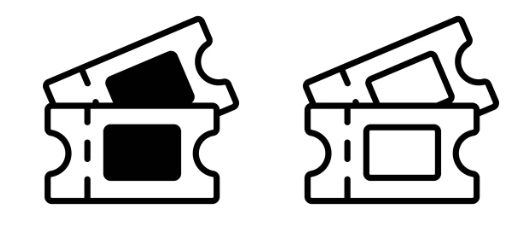In the digital age, online ticket sales have become the primary channel for purchasing tickets to popular events such as concerts, sports games, and music festivals. With the increasing scarcity of these high-demand tickets and the challenges of purchasing them, many users and businesses are turning to technology to secure limited tickets quickly. Ticket scraping is an automated method that helps users capture available ticket information in a short period of time. However, ticketing websites often implement anti-scraping measures like IP restrictions and traffic controls to prevent the misuse of automated tools.

What is Ticket Scraping?
Ticket scraping is the use of web crawlers or automated scripts to quickly search and retrieve online ticket information. Timeliness is crucial for popular events, where tickets can sell out within seconds or minutes. Ticket scraping allows users or businesses to monitor ticket availability automatically, capturing information and making purchases as soon as tickets are released.
However, the ticket scraping process is not straightforward. Ticketing platforms typically use various anti-scraping mechanisms, such as IP blocking, CAPTCHA, and traffic monitoring, to prevent abuse by automated tools.
Common Challenges in Ticket Scraping
When implementing ticket scraping, scrapers often encounter the following challenges:
- IP Blocking: Ticketing websites frequently limit the access frequency or total requests from a single IP address to prevent scraping. If the same IP sends too many requests, it may be blacklisted, blocking further access.
- CAPTCHA and Anti-Bot Mechanisms: Many ticketing platforms use CAPTCHA and other anti-bot mechanisms to distinguish between real users and automated scripts. These mechanisms ensure that only human-operated requests can pass through.
- High Concurrent Traffic Load: During popular ticket releases, websites experience a significant traffic surge and may restrict the access rate per IP to maintain platform stability. This makes it difficult for scraping tools to send frequent requests without being detected.
How Do Residential Proxies Address Ticket Scraping Challenges?
Residential proxies are proxy services based on real household IP addresses, offering IPs from around the globe. These IPs come from real internet users, making it difficult for ticketing platforms to identify them as being used by automated tools. Compared to traditional data center proxies, residential proxies are more discreet. Here's how residential proxies solve specific challenges in ticket scraping:
- Addressing IP Blocking:
One of the biggest hurdles in ticket scraping is IP blocking. Ticketing platforms often limit the request frequency from the same IP or block it entirely. Residential proxies provide a vast pool of residential IPs distributed across different regions, enabling scrapers to send requests through various IPs. Using a residential proxy pool, scraping tools can frequently switch IPs, ensuring that each request originates from a new address, avoiding blocks. - Bypassing CAPTCHA and Anti-Bot Mechanisms:
Some advanced residential proxy services offer solutions to bypass CAPTCHA and other anti-bot mechanisms. These proxies may simulate human behavior (e.g., random request delays, dynamic IP changes) to avoid triggering anti-scraping systems. Additionally, some services provide CAPTCHA-solving features, allowing scraping tools to operate more stealthily and reduce the risk of detection. - Enhancing Scraping Efficiency and Concurrency:
Efficient ticket scraping requires sending a large number of requests within a short time. Through IP rotation offered by residential proxies, scraping tools can send concurrent requests, with each request using a different IP address. This avoids rate limits imposed on a single IP and allows for faster and more stable monitoring of ticket availability, helping capture tickets when they are released.
How Residential Proxies Improve Ticket Purchase Success Rates
In ticket purchasing, timing and speed are critical for success. Residential proxies enhance scraping tools' success rates in several ways:
- Fast IP Switching and Multithreaded Scraping:
With residential proxies' IP rotation feature, scraping tools can switch between multiple IPs quickly and run several threads simultaneously. Each thread uses a different IP, ensuring that a large number of requests can be sent in a short period without being blocked. This high-efficiency scraping model significantly increases the chances of securing limited resources. - Automation and Real-Time Response:
When a ticketing platform releases new tickets, automated scraping tools can use residential proxies to monitor ticket availability in real time and immediately initiate purchase operations. Since residential proxies provide IPs from around the world, tools can monitor multiple regions at once, ensuring that no ticket release goes unnoticed. - Avoiding Platform Detection:
Advanced residential proxy services not only offer dynamic IP rotation but can also simulate real user behavior to avoid detection by ticketing platforms. By mimicking the browsing patterns of users from different regions and network environments, scraping tools can operate more discreetly, greatly reducing the risk of being blocked.

How to Choose the Right Residential Proxy Service?
To maximize success in ticket scraping, selecting the right residential proxy service is crucial. Key factors to consider include:
- IP Pool Size and Regional Coverage:
A high-quality residential proxy service like Omegaproxy should have a large IP pool covering multiple countries and regions. The larger the pool, the more flexible the scraping tool can be in avoiding blocks and accessing tickets globally. - IP Rotation Speed and Frequency:
Ticket scraping often requires high-frequency requests, so the speed and frequency of IP rotation are critical. A good residential proxy service should allow fast, dynamic IP switching to ensure that scraping tools can send as many requests as possible in a short period. - Anonymity and Security:
The IPs used by residential proxies should offer high anonymity, ensuring that the scraping activity is not detected by ticketing platforms. Providers should also offer robust encryption to secure data transmission, preventing the user's scraping activities from being tracked or intercepted. - Service Stability:
Stable connections and low latency are essential for successful ticket purchases. Choosing a residential proxy provider that offers stable service and high-speed connections ensures that, at critical moments, connections won't be interrupted or too slow, hindering the purchase process.
Conclusion
With increasing competition in the ticketing market, ticket scraping has become an important tool to ensure users and businesses can secure limited ticket resources in a timely manner. Residential proxies, as a powerful technological solution, provide high anonymity, global IP coverage, and dynamic IP rotation. They help scraping tools bypass ticketing platforms' IP blocking and anti-bot mechanisms, ensuring efficient and stable operations during ticket purchases.





